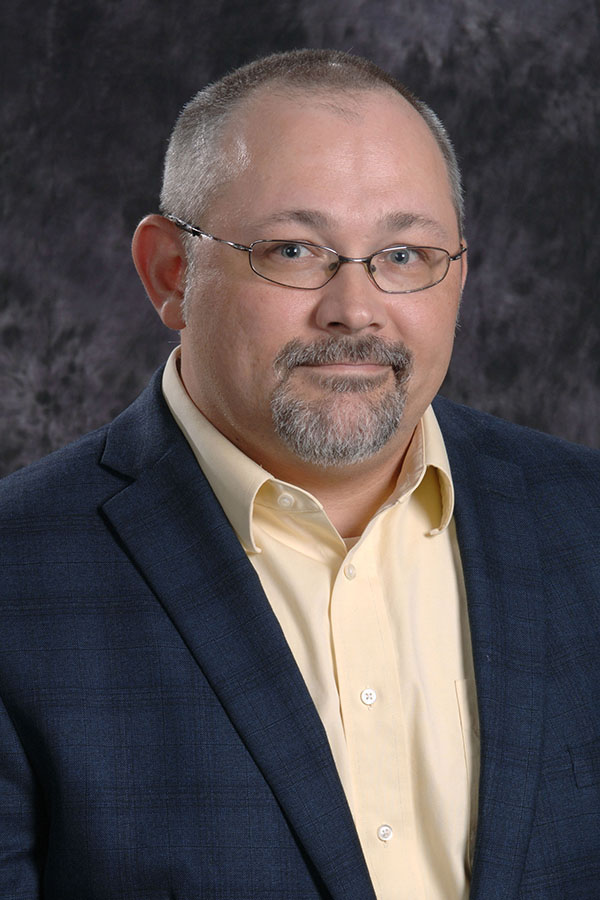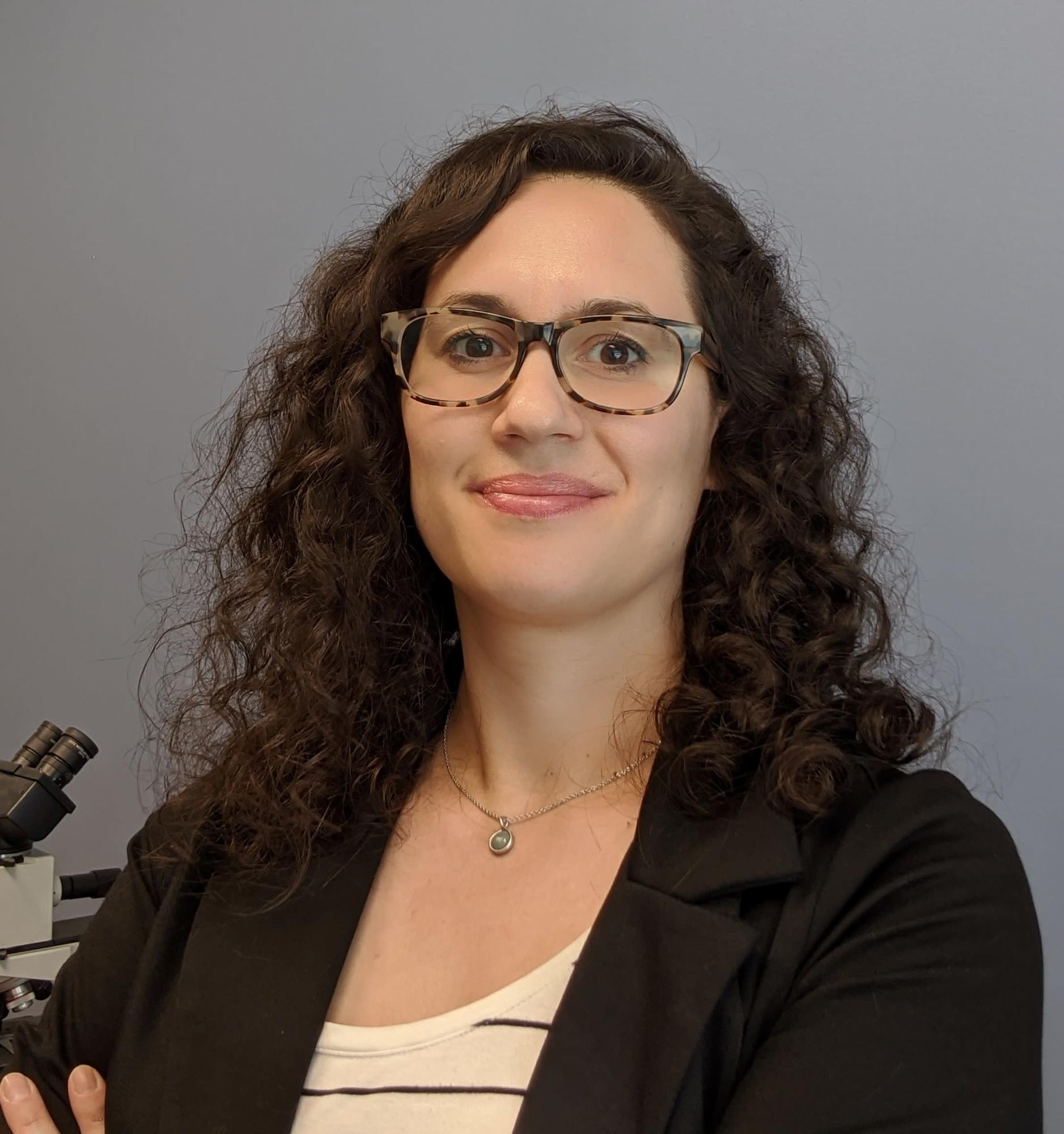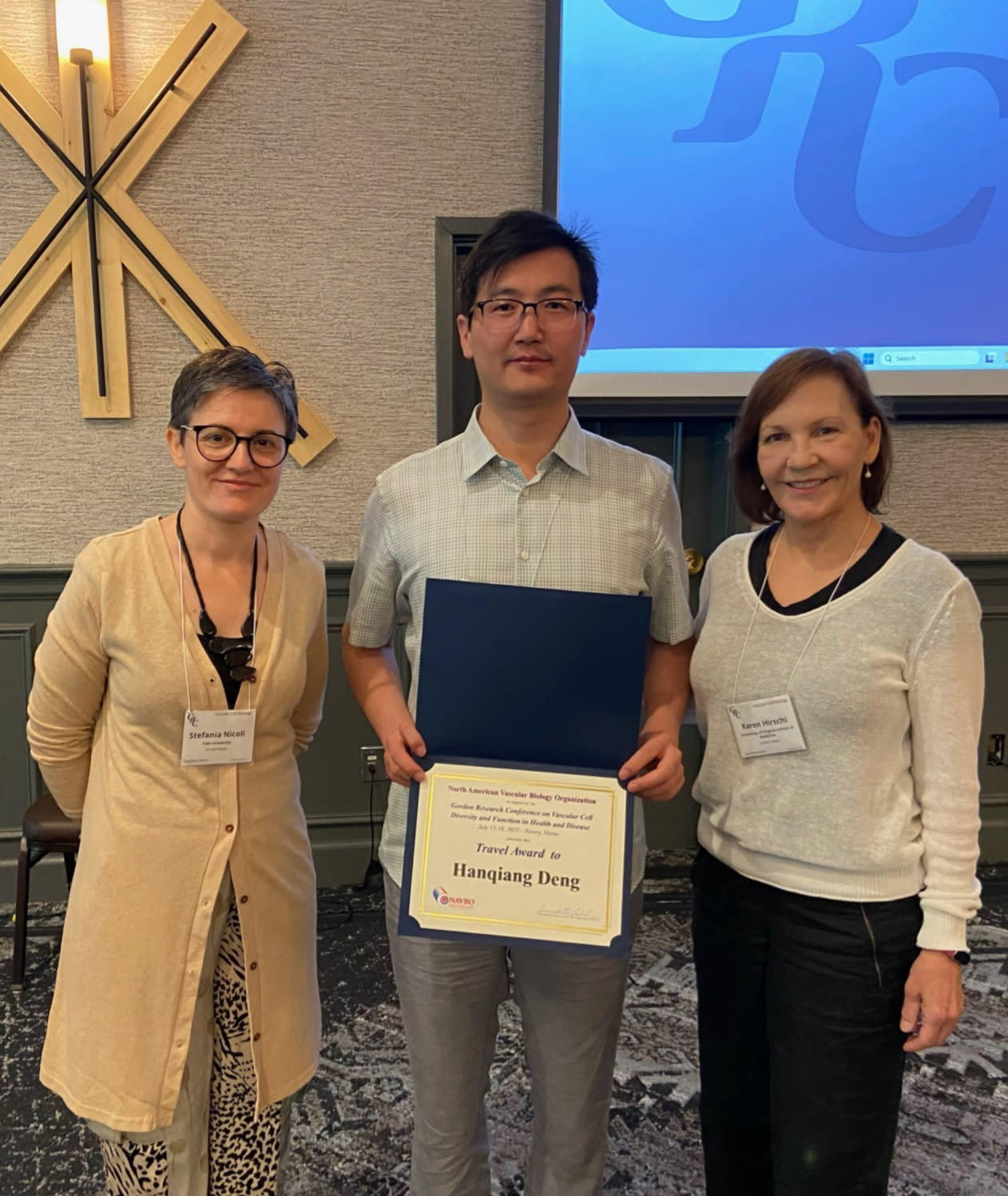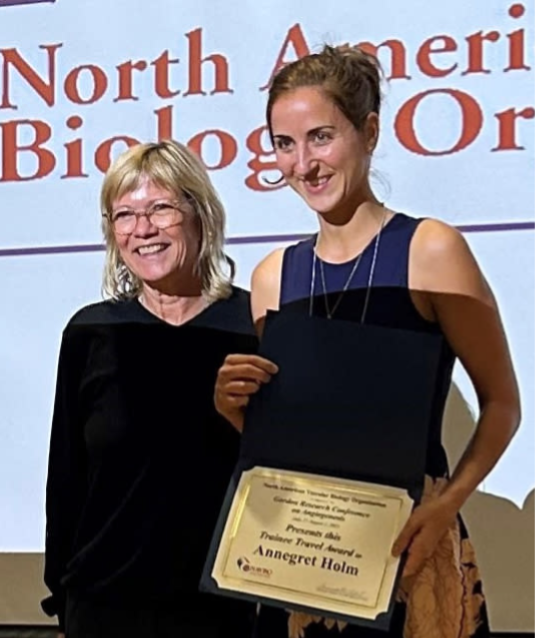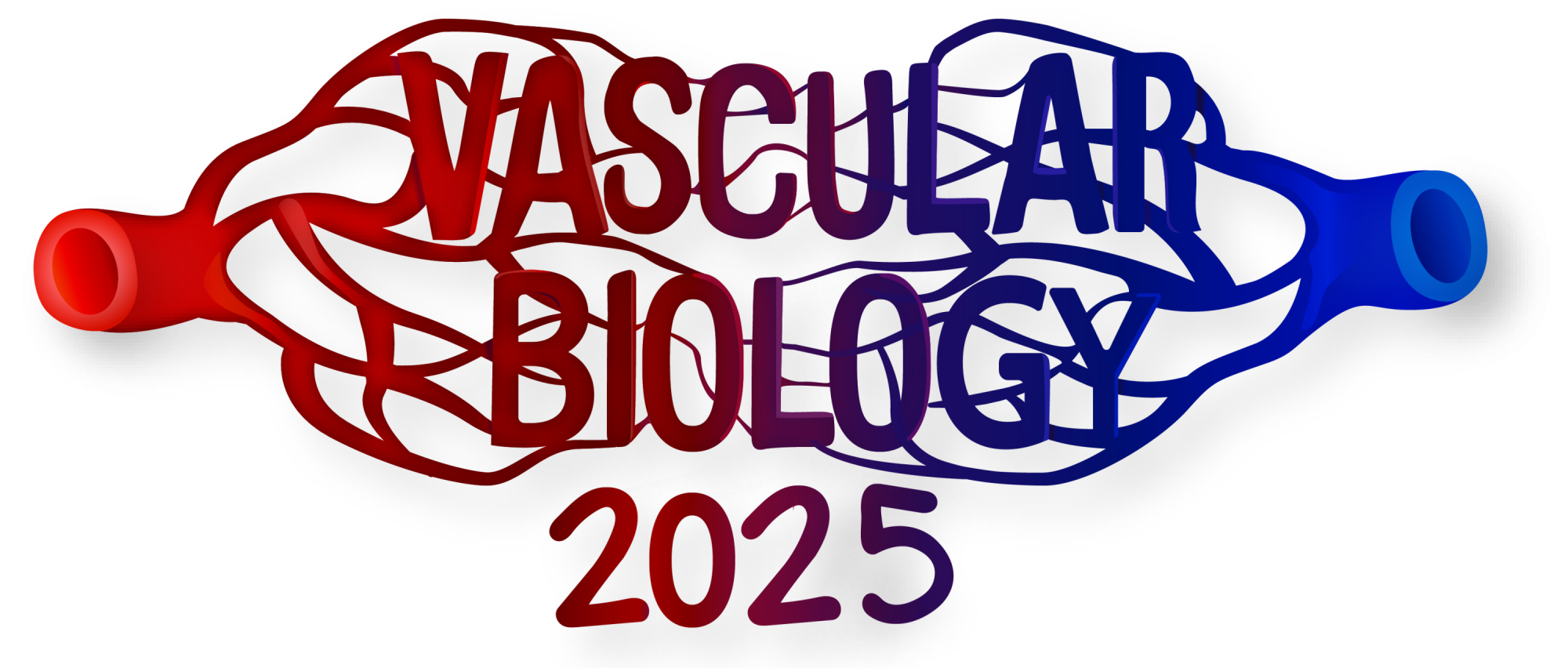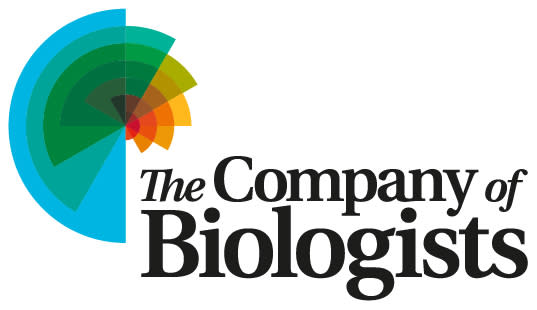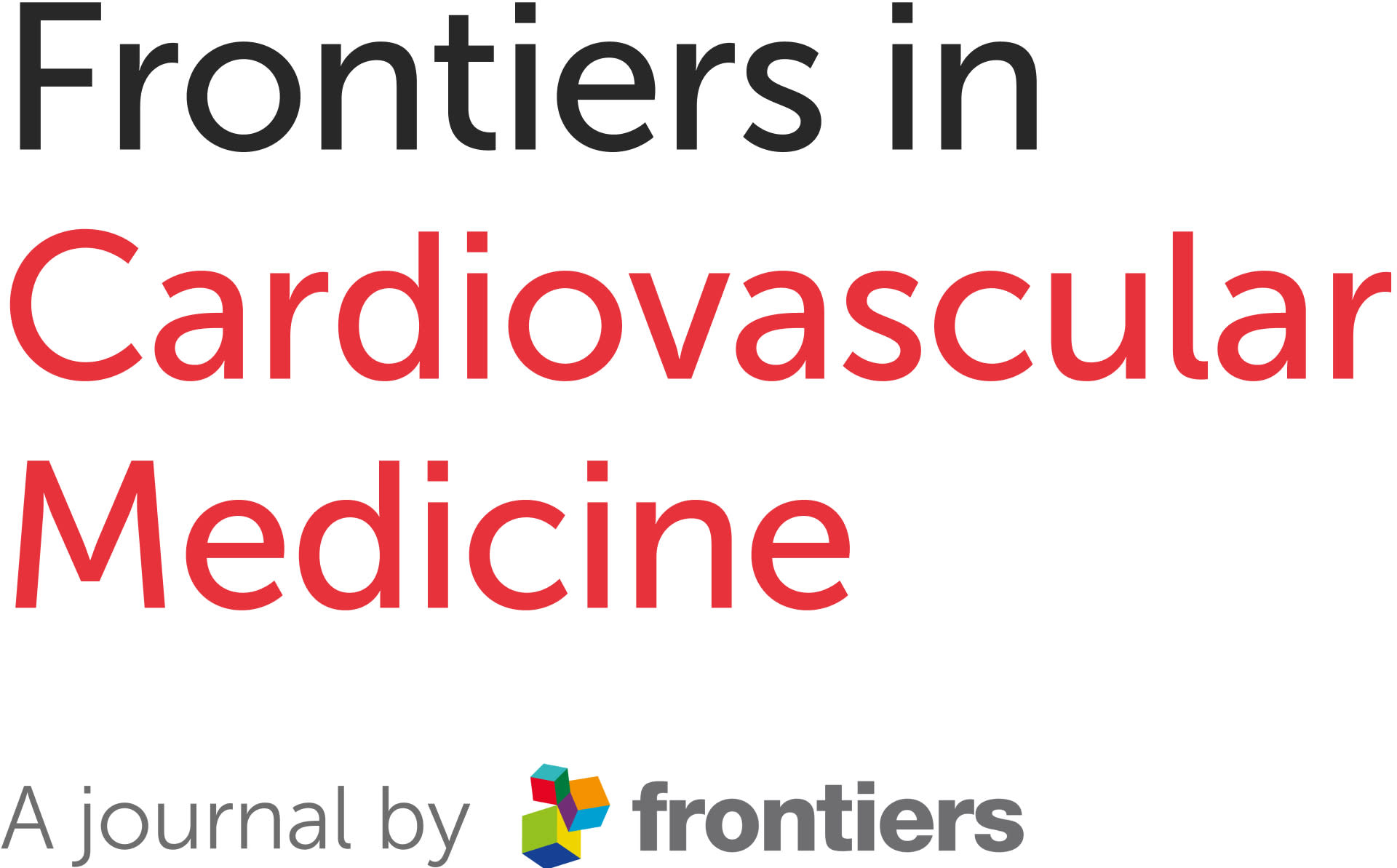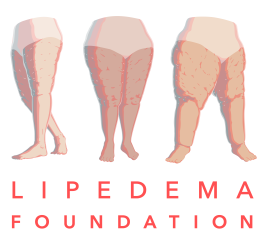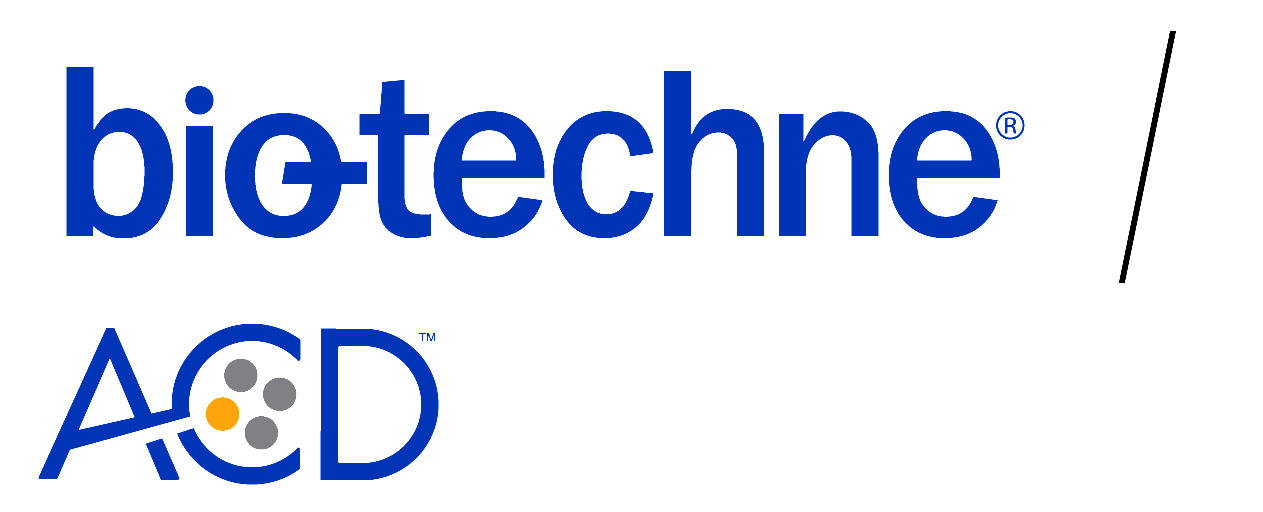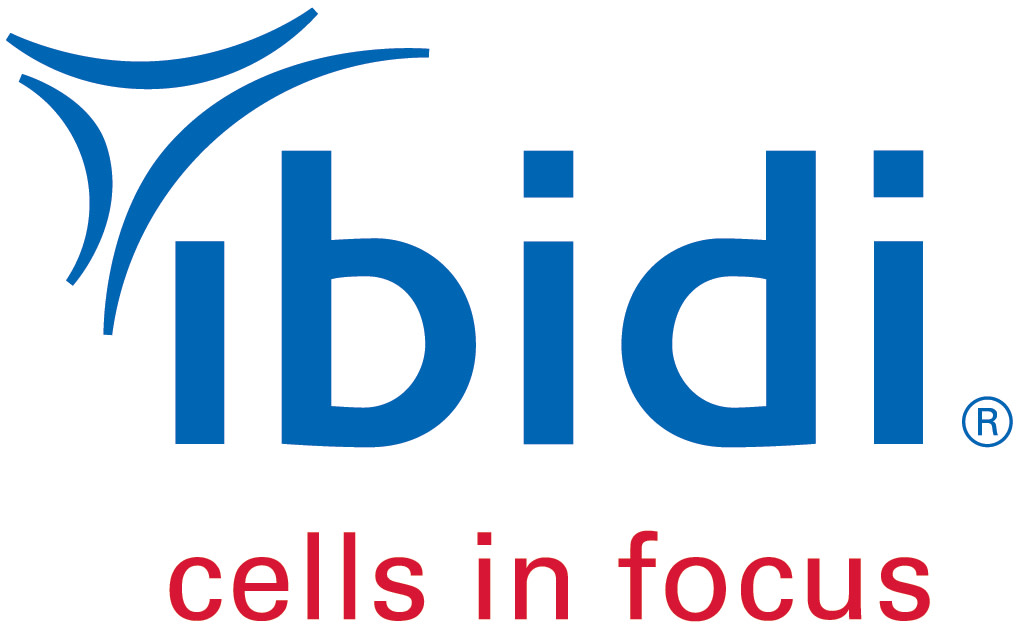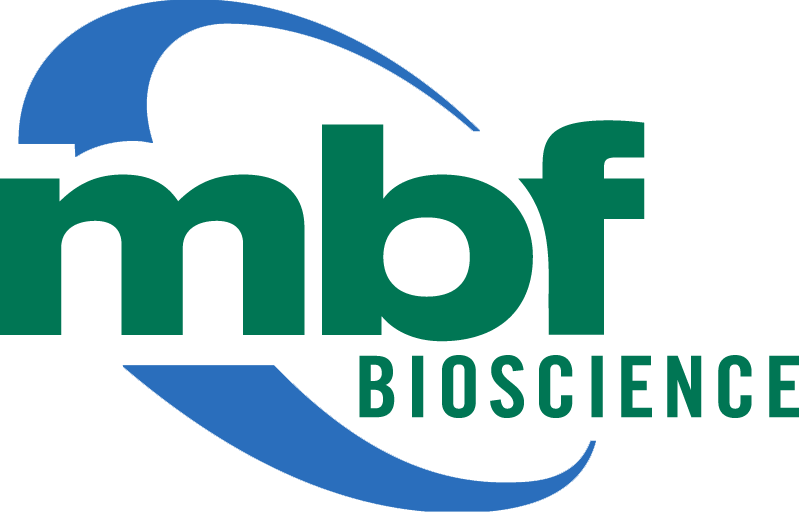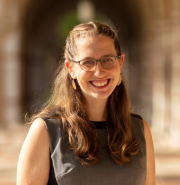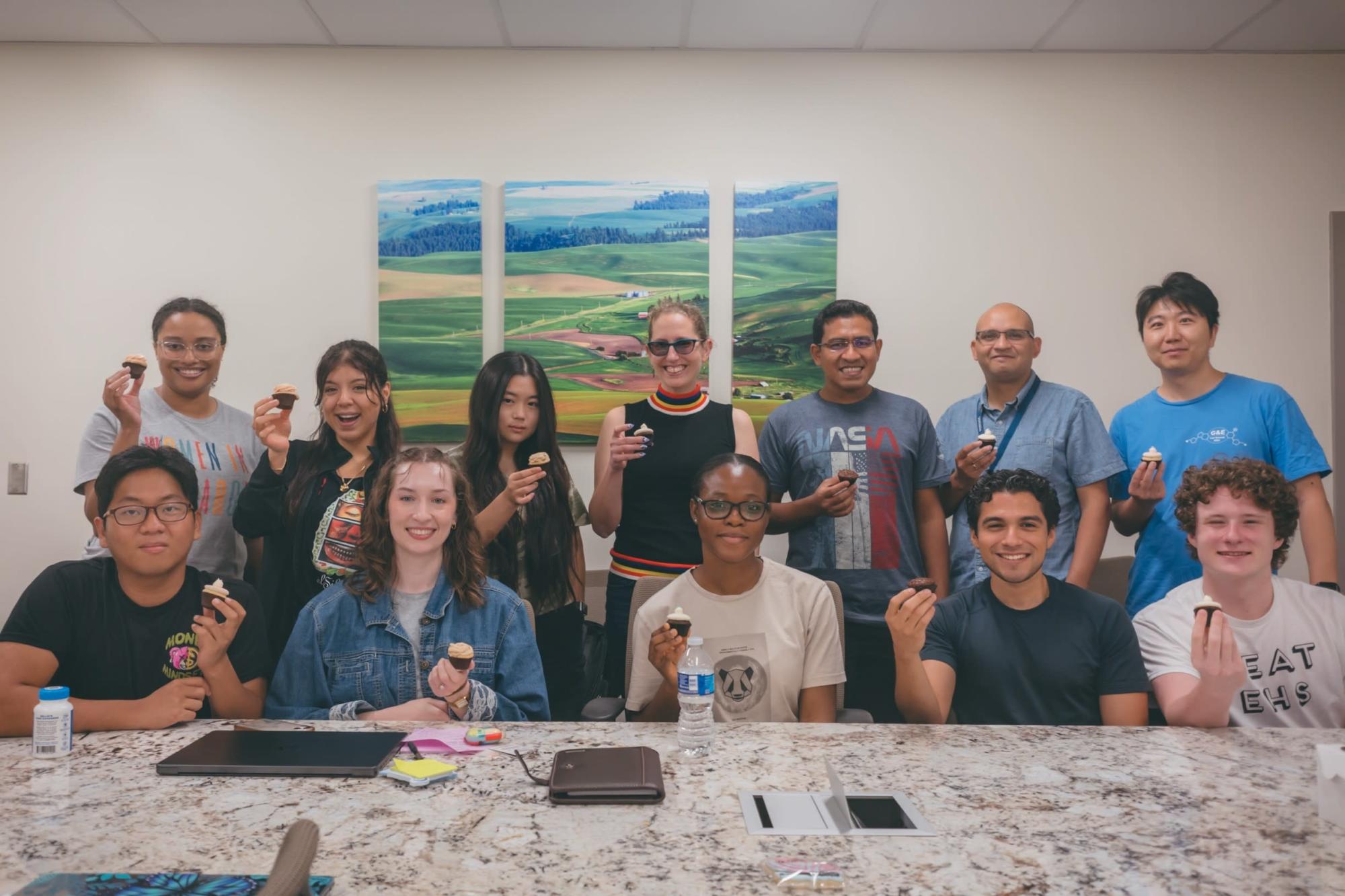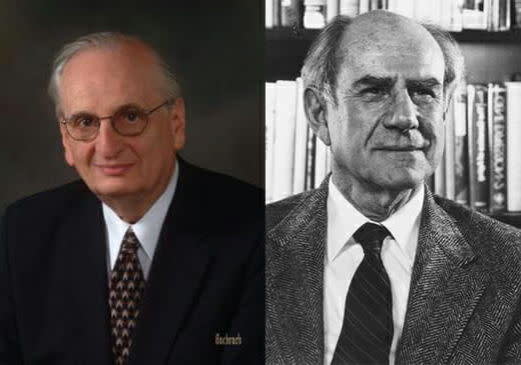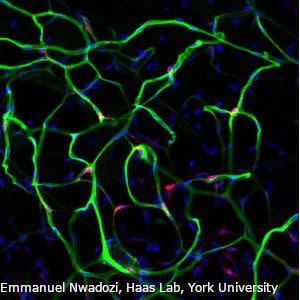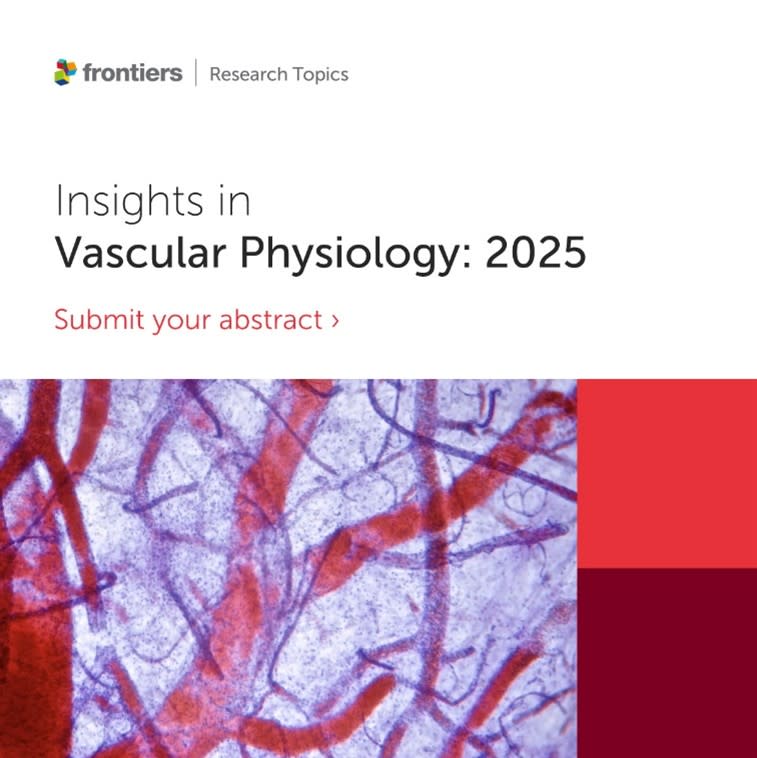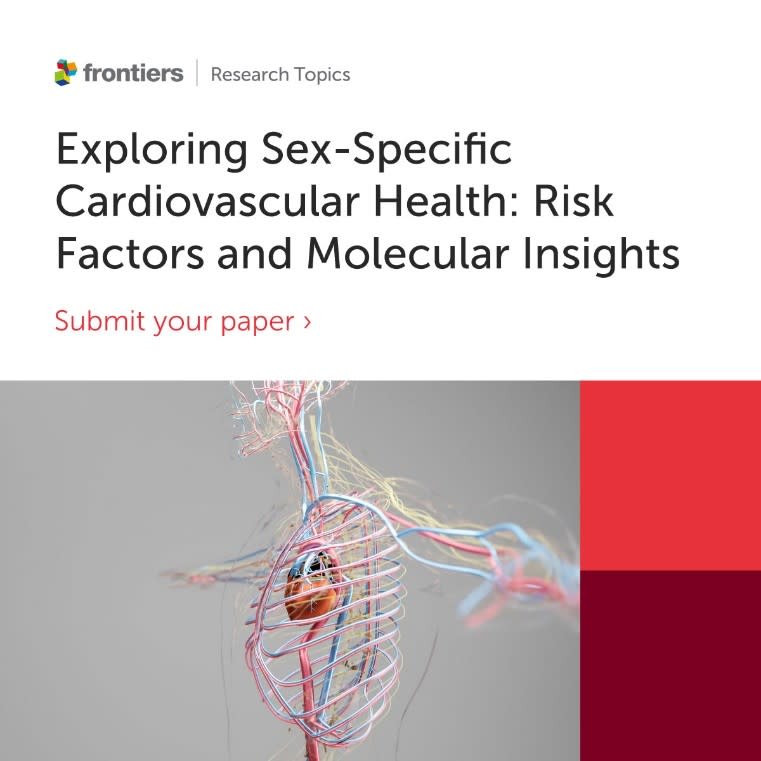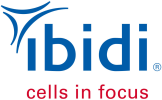|
View this Newsletter Online |
|
|
|
|
August 2025 |
|
President's Message |
|
|
Research!America for your senators and representatives to urge them to restore scientific funding in the upcoming mark-up. By sharing our stories with local leaders and flooding Capitol Hill with informed voices, we can hope to reverse the current trends.
Wayne Orr, PhD President, NAVBO
Helpful links: |
|
|
Meet One of our New Councilors |
|
|
Congratulations Dr. Marie Billaud - Councilor Dr. Marie Billaud is a Lead Investigator and Assistant Professor of Cardiovascular Medicine at Brigham & Women’s Hospital and Harvard Medical School, where she leads a research program focused on vascular biology and aortic disease. Her lab investigates the cellular and molecular mechanisms driving remodeling in human aortic aneurysms, with a particular emphasis on those associated with bicuspid aortic valve. Her lab integrates metabolic profiling, multiomics and translational models to explore how vascular |
|
cells interact with their extracellular environment in both physiological and pathological contexts. Marie is deeply committed to mentoring budding scientists, guiding them through hands-on training in experimental design and providing valuable support as they navigate their professional growth and future careers. An active participant of the North American Vascular Biology Organization (NAVBO), Marie has served as a Member and Chair of the Communications Committee. |
|
New Workshop - February 2026 |
|
As you know, NAVBO polled its members to help in the selection of a topic for our next virtual workshop. We are pleased to announce that our 2026 Virtual Workshop will be - Specification of Endothelial Cell Phenotypes!
|
|
Congratulations |
|
|
Congratulations to Hanqiang Deng, Yale University, recipient of a NAVBO Travel Award, for his abstract, "cSTAR analysis identifies endothelial cell cycle as a key regulator of flow dependent artery remodeling," at the Gordon Research Conference on Vascular Cell Diversity and Function in Health and Disease. |
|
|
Congratulations to Annegret Holm, Boston Children's Hospital, who also received a NAVBO Travel Award, for presenting her abstract entitled "An endothelial SOX18-mevalonate pathway axis enables novel targeted therapies for vascular anomalies" at the Gordon Research Conference on Angiogenesis and Social Interactions with Neighboring Cells and Tissues in Health and Disease |
|
Additional NAVBO Trainee Travel Awards |
|
Starting in January 2026, NAVBO will be using funds to support NAVBO trainee members to attend small conferences of the member's choice, rather than NAVBO restricting it to certain conferences. Preliminary criteria:
*Eligible conferences will be at the discretion of NAVBO. Examples include Gordon Research Conferences, regional society meetings, and local conferences. If you have questions about what qualifies, please reach out to info@navbo.org. Please note: these funds will be given on a reimbursement basis. Receipts will be required after the meeting to receive the scholarship funds. Please stay tuned. More details coming soon! |
|
The Vascular Network |
|
|
Stay Connected on The Vascular Network! Have you joined The Vascular Network, NAVBO’s exclusive social media platform? It’s the perfect place to share updates, post striking images, discuss research, and connect with fellow members—all without ads or distractions.
Don’t miss a thing! The Daily Digest delivers a summary of the day’s posts right to your inbox. If you’re not seeing it, be sure to whitelist noreply@junolive.com so it doesn’t land in your junk folder.
Join the conversation today and help build a vibrant online community for all things NAVBO!
|
|
Vascular Biology 2025 |
|
|
|
Save $$$ - Register by 8/31 for Vascular Biology to get the Early Bird Discount! Missed the abstract submission deadline? Late-Breaking submissions will be accepted from September 1 through September 30, 2025 |
|
Thank you to Supporters of VB2025 |
|
VB2025 Exhibitors |
|
Visit the Exhibitor Guide to learn more about our exhibitors |
|
Lessons Learned |
|
|
Callie Kwartler, Ph.D. |
|
Lab of the Month - Callie Kwarlter |
|
|
This month we are highlighting the lab of Dr. Callie S. Kwartler, an Assistant Professor at UTHealth McGovern Medical School, specializing in molecular mechanisms driving smooth muscle cell fate and their role in moyamoya disease pathogenesis. Her lab uses mouse models and iPSC systems to study chromatin remodeling, glycolytic metabolism, and nuclear actin in smooth muscle cells, aiming to uncover therapeutic targets for the disease.
|
|
Spotlight on Trainees |
|
Revisions to the NIH Fellowship application and review process The NIH has revised application and review criteria for fellowship applications, beginning with those submitted January 25, 2025. New fellowship parent announcements for FORMS-I instructions are now available. The goal of the changes is to improve the chances that the most promising fellowship candidates will be consistently identified by scientific review panels. The modifications are meant to: focus reviewer attention on the candidate's preparedness and potential, research training plan, and mentor’s commitment to the candidate; clarify the language in the application and review criteria to ensure recognition of a broad range of candidates as meritorious; and reduce bias in review by emphasizing the commitment to the candidate without undue consideration of sponsor and institutional reputation. |
|
Call for Nominations |
|
|
We are seeking nominations from the membership for the 2026 Earl P. Benditt and Judah Folkman Awards, which will be presented at Vascular Biology 2026 at Asilomar in Monterey.
Deadline has been extended to September 2, 2025. See the web site for more details. |
|
Member News |
|
Welcome to our New Members: Fenix Alexandra de Araujo, University of Virginia Megan Ashworth, LSUHS Emily Bramel, The Broad Institute Anastasia Cicala, The Hormel Institute Kristina Day, Indiana University School of Medicine Olivia Gannon, Albany Medical College Wenduo Gu, Stanford University Xiaohui Guan, LSU Health Shreveport Shelby Hader, Medical College of Wisconsin Christopher Hesh. University of Minnesota Ashleigh Hicks, Macquarie University Luke Hoeppner, The Hormel Institute, University of Minnesota Hina Iqbal, Medical College of Wisconsin Richard Justice, The University of New Mexico Kaleigh Kozak, Medical College of Wisconsin Nivethitha Kota Lakshminaraasimulu, Queen Mary University of London Yuta Koui, National Heart, Lung, and Blood Institute Maniselvan Kuppusamy, University of Virginia Olubodun Lateef, University of Missouri Gabrielle Largoza, University of Virginia Haobo Li, Massachusetts General Hospital Valentina Lo Sardo, University of Wisconsin-Madison Miguel Madeira, Stony Brook University Samantha Mahfoud, Massachusetts General Hospital Katarina Martinet, University of Pittsburgh Kate Micallef, Michigan Medicine Neil Nadkarni, Stony Brook University Arun Narota, Boston University Taylor Nordan, Brigham and Women's Hospital Elena Pineda, Brown University Theopi Rados, Brown University/Providence VAMC Aashita Rajput, University of North Carolina, Chapel Hill Kaoru Ri, Johns Hopkins University Jill Rose, University of Nebraska Medical Center Maria Jesus Ruiz-Rodriguez, Yale University Adam Salon, Augusta University Laurel Schappell, Stony Brook University Chowdhury Ibtida Tahmin, University of Minnesota Kanesha Travis, University of North Carolina, Chapel Hill Kelsey Watts, University of Virginia Matthew Worssam, Stanford University Tong Xu, Amsterdam Medical Center Hawon Yoon, University of North Carolina, Chapel Hill Biessan Zeidan, Wayne State University |
|
Recent Member Publications |
|
Embryonic Vascular Dysgenesis: The Origin of Proximal Femoral Focal Deficiency Proximal Femoral Focal Deficiency (PFFD) is the most proximal manifestation of a syndrome involving Congenitally Shortened lower Limbs (CSL), which also affects the fibula and midline metatarsals. This pattern of congenital human long bone deficiencies corresponds, in a time dependent manner, to the failed ingrowth pathways of new blood vessels of the growing embryonic limb. Read More
Exercise-Induced SOD3/H2O2 Sulfenylates PKG1α to Restore Vasodilation in Diabetes
Endothelium- and Fibroblast-Derived C-Type Natriuretic Peptide Prevents the Development and Progression of Aortic Aneurysm Thoracic (TAA) and abdominal (AAA) aortic aneurysm are life-threatening diseases characterized by dilation, inflammation, and structural weakness; development of pharmacological therapies is desperately needed. CNP (C-type natriuretic peptide) plays a key role in vascular homeostasis, mediating vasodilator, anti-inflammatory, and antiatherogenic actions. Since such processes drive AA, we determined the role of endogenous CNP in offsetting pathogenesis. Read More
The MDM2-p53 axis regulates norrin/frizzled4 signaling and blood-CNS barrier function Norrin-induced activation of β-catenin-dependent signaling through the receptor frizzled4 in endothelial cells (ECs) is essential for establishing and maintaining blood-CNS barrier function. We sought to determine how this pathway is modulated under stress or disease conditions. Read More
Resolving the design principles that control post-natal vascular growth and scaling After birth, tissues grow until they reach adult size, with each organ exhibiting unique cellular dynamics, growth patterns, and stem or non-stem cell sources. Using multiscale experimental and computational approaches, we found that aortic enlargement follows distinct growth principles, scaling with the vertebral column. Read More
Impact of ligand binding on VEGFR1, VEGFR2, and NRP1 localization in human endothelial cells The vascular endothelial growth factor receptors (VEGFRs) bind to cognate ligands to facilitate signaling pathways critical for angiogenesis, the growth of new capillaries from existing vasculature. Intracellular trafficking regulates the availability of receptors on the cell surface to bind ligands, which regulate activation, and the movement of activated receptors between the surface and intracellular pools, where they can initiate different signaling pathways. Read More
Effect of bevacizumab on non-target intracranial meningiomas and non-vestibular schwannomas in NF2-related schwannomatosis: NF104 Bevacizumab treatment is associated with imaging and hearing responses in progressive vestibular schwannoma (VS) caused by NF2-related schwannomatosis (NF2-SWN). However, its effect on co-existing intracranial non-vestibular schwannomas (NVS) and meningiomas is unclear. Read More
Solid Stress Estimations via Intraoperative 3D Navigation in Patients with Brain Tumors Physical forces exerted by expanding brain tumors—specifically the compressive stresses propagated through solid tissue structures—reduce brain perfusion and neurologic function but heretofore have not been directly measured in patients in vivo. Solid stress levels estimated from tumor growth patterns are negatively correlated with neurologic performance in patients. Read More
Mathematical Modeling and Association Analysis Deciphers the Impact of the Gut Microbiome on Cancer Immunotherapy The gut microbiome has emerged as a key regulator of response to cancer immunotherapy. However, a better understanding of the underlying mechanisms by which the microbiome influences immunotherapy is needed to identify strategies to optimize outcomes. Read More
Mutant p53 exploits enhancers to elevate immunosuppressive chemokine expression and impair immune checkpoint inhibitors in pancreatic cancer Pancreatic ductal adenocarcinoma (PDAC) is a highly aggressive cancer characterized by activating KRAS mutations and TP53 alterations. TP53 missense mutations lose their wild-type tumor-suppressor function. Read More
An opportune time for targeted brain arteriovenous malformation therapy
If you recently published a paper and would like to have it included in a future issue of the NAVBO NewsBEAT and/or on our web site. Please send the citation to membership@navbo.org |
|
Industry News |
|
The challenges facing higher ed in the US The 2025 Research Issue from The Chronicle of Higher Education explores the range of impacts already being felt in higher ed from the Trump administration’s push for deep cuts to federal support for university research, attention to ideological alignment, and access to US institutions by foreign students and scholars. Many of the administration’s actions could eventually be reversed by the courts or Congress, but meanwhile the effects have been chilling. Particularly compelling is Karin Fischer’s account of federal science policy dating back to World War II, showing how it fueled prosperity on and off campuses and made American universities the envy of the world – the foundation of a research enterprise that yields a five-fold return on every dollar invested.
Communicating scientific enthusiasm and value through film Sarah Goodwin, award-winning executive director of the Science Communication Lab (SCL), is featured in a recent interview from the National Academies. Armed with a Ph.D. in Cell Biology from UCSF, Goodwin has worked with hundreds of scientists from a variety of disciplines to share their scientific stories using the power of film. “Scientists are often taught to ‘let the science speak for itself,’” notes Goodwin, “but we’ve found that storytelling — focusing on scientists’ motivations, identities, and discovery journeys — makes science more relatable and memorable. When audiences connect with the people behind the work, they gain more knowledge, value science more deeply, and better understand how research unfolds.”
NIH Loan Repayment Program application cycle opening September 1 The NIH has announced that applications for the Extramural Loan Repayment Program (LRP) will be accepted beginning September 1, 2025. The LRP was established by Congress and designed to recruit and retain highly qualified health professionals into biomedical or biobehavioral research careers. Awardees can receive up to $100,000 in qualified educational debt repayment with a two-year award. To learn more about eligibility requirements, application dates, and the benefits of receiving an LRP award, visit the LRP website, check out the overview video, and attend an upcoming webinar or Q&A session. The deadline to apply is November 20, 2025. |
|
Call for Papers |
|
|
Frontiers In Cardiovascular Medicine Research Topic: Advances in Vascular Malformations: From Molecular and Cellular Mechanisms to Clinical Therapies and Management Topic Editors: Jennifer Fang, Elisa Boscolo, Miguel Lopez-Ramirez, Alexandre Dubrac NAVBO is sponsoring this Research Topic through our partnership with Frontiers in Cardiovascular Medicine. Vascular malformations refer to a wide range of structural abnormalities that can affect all vessel types in the blood and vascular lymphatic trees – including arteries, capillaries, and veins. Vascular malformation diseases can be inherited or can occur spontaneously; however, in all cases, resulting vascular lesions can significantly compromise cardiovascular and organ function and reduce patient quality-of-life. In this Research Topic, we aim to gather contributions from scientists and clinicians to share recent advances in our understanding of the biology and treatment of vascular malformations. Ultimately, our goal is to accelerate the development of new therapeutic treatments for patients with vascular malformations affecting blood or lymphatic vessels. Specific areas of interest are listed on the webpage The deadline for manuscript submission is October 16, 2025. If you are interested in participating in this Topic, we encourage you to consider submitting a proposed manuscript summary by June 28, 2025.
|
|
|
|
Frontiers In Cardiovascular Medicine Research Topic:
NAVBO is sponsoring this Research Topic through our partnership with Frontiers in Cardiovascular Medicine. Mechanotransduction—the process by which cells detect and convert mechanical stimuli into biochemical signals—is essential for embryonic development, organogenesis, and the maintenance of tissue homeostasis. It also plays a pivotal role in disease progression. This is especially true in the cardiovascular system, where cells are constantly exposed to complex mechanical forces, including shear stress, cyclic stretch, and pressure. In addition to these biomechanical stimuli, cardiovascular cells respond to cues from the extracellular matrix (ECM) in a dynamic, three-dimensional microenvironment. Notably, these cells not only sense and respond to mechanical forces of varying magnitude, direction, and frequency but also actively participate in remodeling their biomechanical surroundings. Specific areas of interest are listed on the webpage The deadline for manuscript submission is January 5, 2026. If you are interested in participating in this Topic, we encourage you to consider submitting a proposed manuscript summary by September 17, 2025. |
|
|
|
|
BMC Biology is calling for submissions to theirr Collection on vasculogenesis and angiogenesis in vivo and in vitro. This Collection aims to bring together cutting-edge research that explores the cell and molecular mechanisms and therapeutic applications of blood vessel formation in health and disease. Tara Haas, York University, is one of the guest editors. Deadline for submission is August 22, 2025. Download the flyer for more information.
|
|
|
|
This Research Topic will constitute the second volume of the Insights in Vascular Physiology series. The 2025 volume invites submissions of original papers, reviews, or perspectives on such topics as abdominal aortic aneurysm, impact of microbiome on vascular physiology, cerebral microcirculation, and coronary microcirculation (see the link below for full topics list). This issue is edited by Drs. Luis A. Martinez-Lemus, University of Missouri, Columbia, USA; Christopher Garland, University of Oxford, Oxford, UK; Francesco Moccia, University of Molise, Campobasso, Italy; and Andrew P Braun, University of Calgary, Calgary, Canada. Frontiers | Insights in Vascular Physiology: 2025, Submission Deadline: November 2025 |
|
|
|
|
|
This collection focuses on the biochemical determinants and risk factors that contribute to the sex differences in cardiovascular disease initiation, development, presentation, and diagnosis. Specific areas of interest include coronary disease, microvascular dysfunction, hormonal and non-hormonal mechanisms of sex-related cardio protection, vascular biomechanics, and impacts of gender (as distinct from biological sex) and related lifestyle on cardiovascular health. The topic editors are Drs. Irena Levitan, University of Illinois Chicago, Catherine Martel, Universite de Montreal, and Benard Ogola, Augusta University. Frontiers | Exploring Sex-Specific Cardiovascular Health: Risk Factors and Molecular Insights. |
|
NAVBO Corporate Partners |
|
NAVBO Corporate Member |
|
Calendar of Events |
|
|
Job Postings |
|
|
|
|
North American Vascular Biology Organization |


